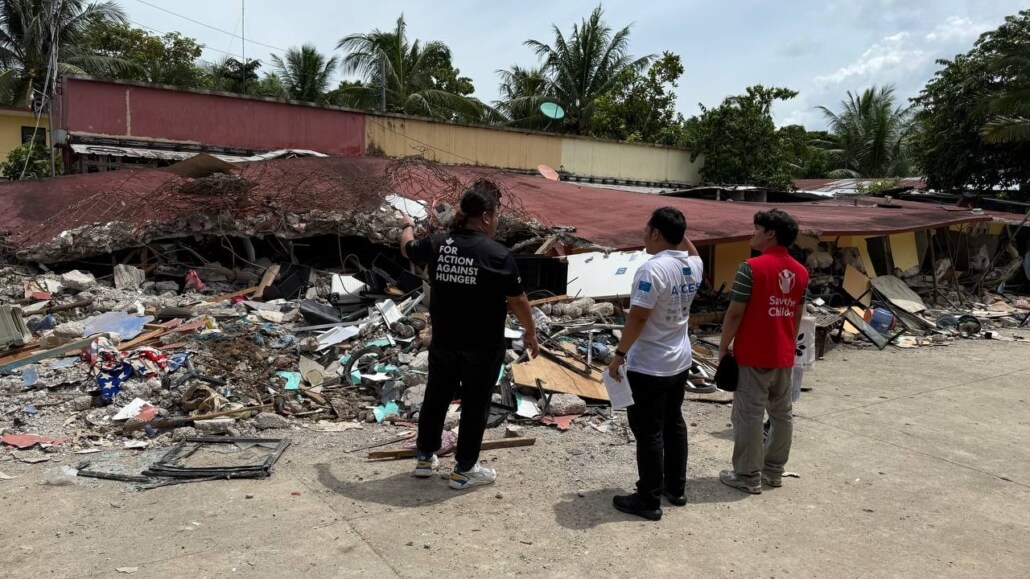Action Against Hunger Responds to the Magnitude 6.9 Earthquake in Cebu
CEBU, PHILIPPINES ─ On the night of 30 September 2025, a magnitude 6.9 earthquake struck northern Cebu, its epicenter just outside Bogo City. The tremor, felt at Intensity VII (Destructive) on the PHIVOLCS scale, toppled homes and buildings, cut power and water supplies, and left entire communities in fear as thousands of aftershocks continued to rattle the province.
According to government figures, over 547,394 people (155,094 families) have been affected as of October 6. At least 72 lives were lost and more than 559 injured, with the numbers still expected to rise as search and rescue operations continue. Bogo City, San Remigio, and Medellin were among the hardest hit, accounting for the majority of casualties and damage.
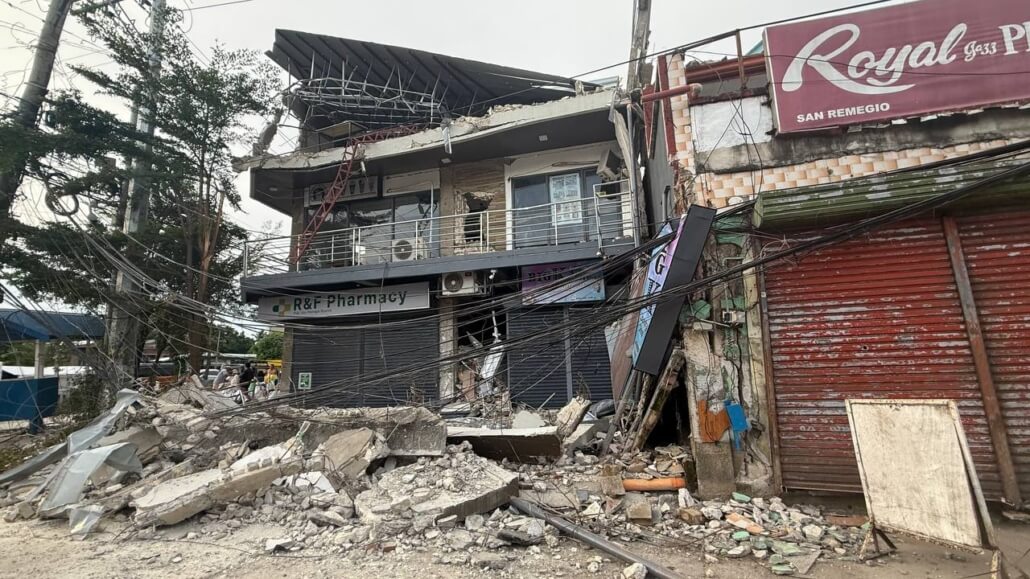
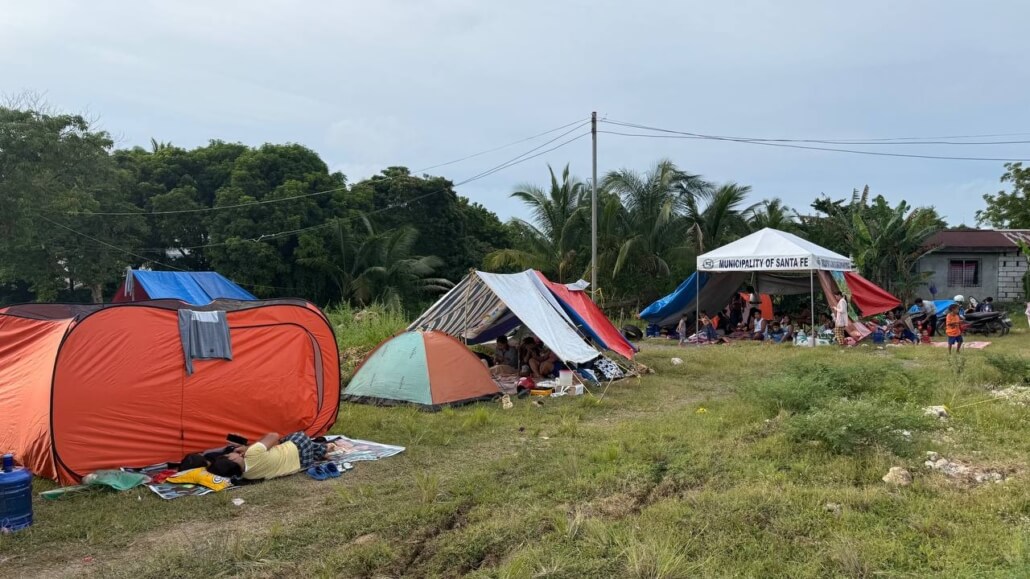
In photos: Current situation in Cebu where displaced families stay in open areas and structural damages were widespread and significant. (Photos by Brian Kae Enriquez for Action Against Hunger
Families have been displaced on a massive scale. Many are now living in makeshift shelters along roadsides, open fields, and school grounds, too afraid to return to their damaged homes. In Bogo City’s Yolanda Village, a relocation site for survivors of Typhoon Yolanda (Haiyan), families who once rebuilt their lives after a past disaster have again been forced to flee.
In some towns in the Municipality of Tobogon, desperate families have started putting up signages along the roads pleading for food and water.
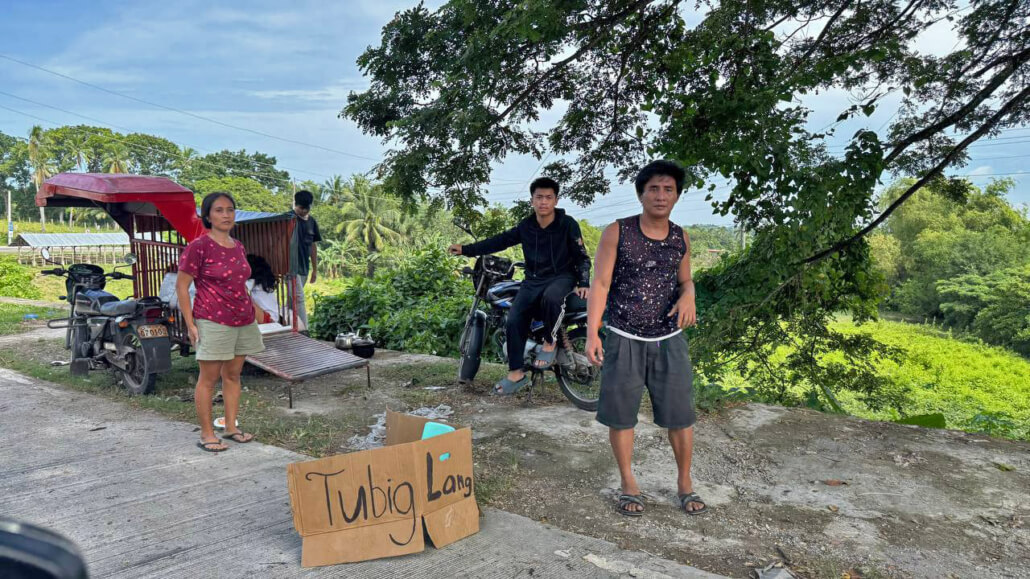
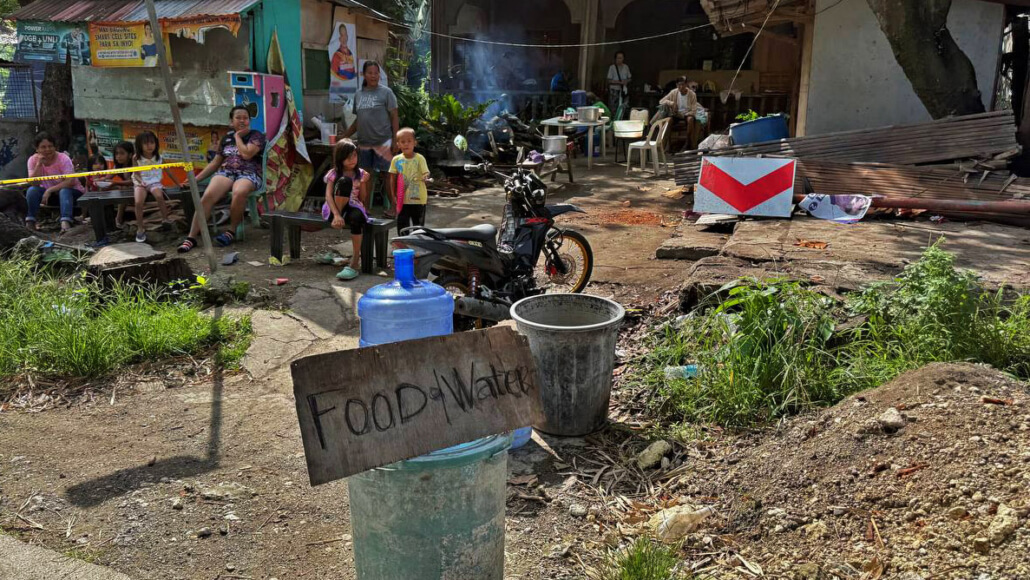
In photo: Situation along the road in Municipality of Tabogon, Cebu. People have signages seeking food and water. (Photos by Brian Kae Enriquez for Action Against Hunger)
Essential services are also heavily disrupted. Power outages have left hospitals, water systems, and communication lines down across northern Cebu. Damaged pipelines and collapsed reservoirs cut off access to safe drinking water, forcing families to rely on unsafe sources. Overcrowded evacuation centers lack basic sanitation, raising fears of outbreaks of waterborne diseases.
The psychological toll is equally severe. Survivors, particularly children, women, and the elderly, are showing signs of trauma, stress, and fear. Many refuse to go back inside buildings due to the continuing aftershocks.
Our Ongoing Response
In the immediate aftermath, Action Against Hunger’s Emergency Response Team (MERT) deployed to northern Cebu to conduct rapid assessments and coordinate with local government and humanitarian partners. Together with the ACCESS Consortium with funding support from the European Union through the EU Civil Protection and Humanitarian Aid, and the WASH Cluster, our teams have been working to identify urgent needs and provide life-saving support.
So far, our teams have:
- Started water distribution in affected communities in Tobogon through trucking, with more resources being mobilized to scale up.
- Facilitated psychosocial support sessions for displaced families in Bogo City, helping survivors process trauma and regain a sense of safety.
- Coordinated closely with local government units, government agencies like the Department of Health, and humanitarian actors to ensure that clean water, sanitation, and hygiene (WASH) services are prioritized in evacuation centers and host communities.
- Prepositioned 700 WASH kits (hygiene and water kits) from Manila and Cotabato, preparing to scale up interventions as soon as additional resources are made available.
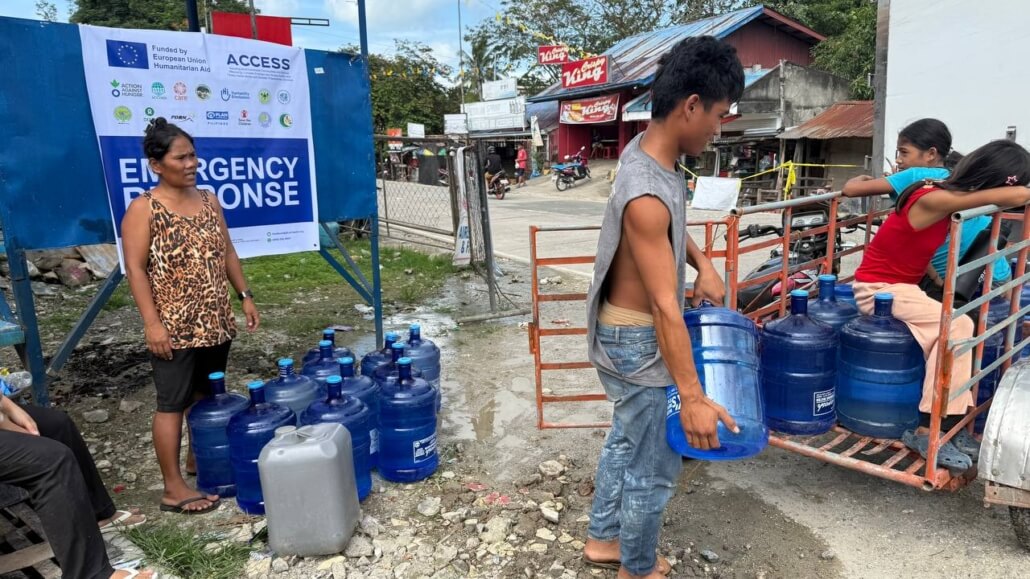
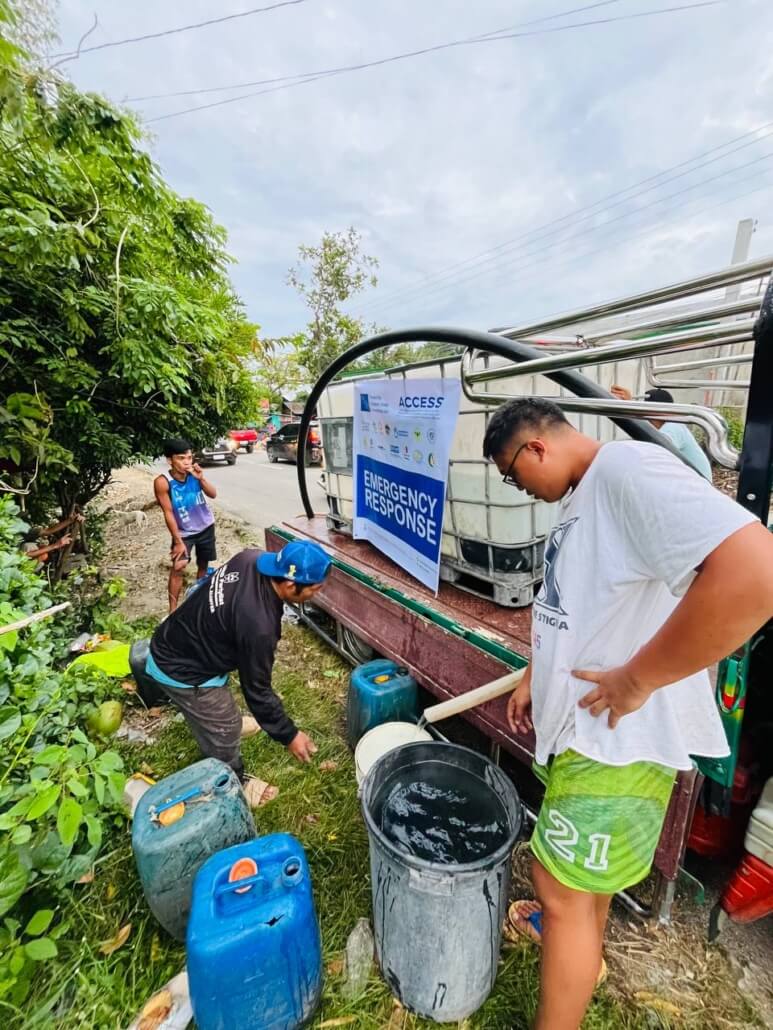
In photos: Water rationing in Brgy. Ilihan in Tabogon, Cebu through the ACCESS Consortium. (Photos by Brian Kae Enriquez for Action Against Hunger)
Emerging Needs
The scale of the disaster has left enormous gaps. Immediate needs include:
- Clean water and sanitation facilities to prevent outbreaks of disease.
- Emergency shelter materials (tents, tarpaulins, sleeping kits) for families staying outdoors.
- Food assistance, especially for children, pregnant and lactating women, and people with disabilities.
- Medical support for overwhelmed hospitals, including medicines, surgical supplies, and mental health care.
- Psychosocial support for communities coping with fear and repeated displacement.
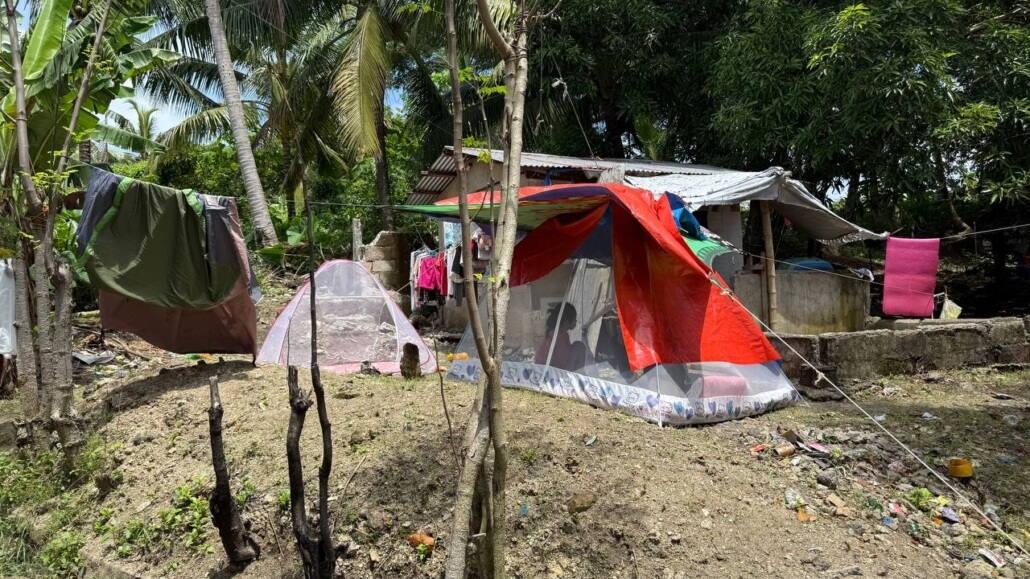
In photo: Residents of Barangay Samosa, Tabogon are currently staying tents and open spaces after a magnitude 6.9 earthquake struck northern Cebu. Many continue to sleep outdoors due to ongoing aftershocks and the risk of falling debris. Families are staying in informal camps, by the roadside, or with relatives as damage assessments are still ongoing. (Photo by Brian Kae Enriquez for Action Against Hunger)
Standing in Solidarity
Cebu is still reeling from the earthquake, and the situation remains fluid as aftershocks continue to affect communities. Action Against Hunger will continue assessing the needs on the ground and working closely with partners and stakeholders to ensure that urgent priorities are met. With the support of our donors and through the ACCESS Consortium, funded by the EU Civil Protection and Humanitarian Aid, we remain committed to scaling up our response in the coming days—delivering clean water, essential relief, and protection to the most vulnerable families—while helping communities move toward recovery with dignity.


